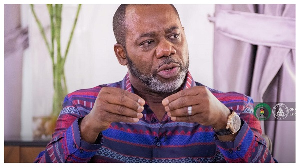Last week’s elections in Ghana have gone into the second round, after the main contenders failed to win more than 50 per cent of the vote.
The ruling New Patriotic Party’s candidate, Nana Akufo-Addo won 49.1 per cent of the vote, against 47.92 per cent for his rival, John Atta Mills of the National Democratic Congress.
President John Kufuor too did something that is increasingly rare in Africa — he stepped down after his constitutional two terms, without bribing parliament to amend the constitution and give him a third, fourth, sixth, even seventh bite at the cherry as has happened in Uganda — and nearly 10 other countries on the continent — over the past three years.
The more notable thing about Ghana, however, is that they actually found people who know how to count votes. Africa has a great contradiction about counting.
Take Zimbabwe, where inflation is 23 million per cent, and to buy a cow in the local market you need billions of Zimbabwe dollars, and a tired loaf of bread costs millions.
Ordinary Zimbabweans have shown that they are adept at counting. There are very few countries in the world where a worker can wrap his head around one billion in seconds, as they do in Zimbabwe.
However, early this year when elections were held in Zimbabwe, the government of the embittered and embattled President Robert Mugabe claimed that pro-opposition election clerks who can count billions in their heads without batting an eyelid, had somehow failed to add up just a few thousand votes.
And, on the other hand, the ruling Zanu-PF officials who could knock off zillions in their sleep, started having problems figuring out Mugabe’s votes. Where he had 1,200 they saw it as 12,000.
In many countries, you will find an African with a PhD in mathematics, all of a sudden cannot add up 2 and 2 when he has to count the votes of a president who is being badly beaten by an opposition candidate at the polls.
The reasons for this highly politicised attitude towards addition and subtraction probably has to do with scarcity.
In Nigeria, they failed to have a census for decades, and when they finally did the outcome was widely rejected.
That is because the amount of federal grants given to states depends on the population, so states that had relatively fewer people wanted the numbers inflated, and those that had many also wanted the numbers inflated.
Opinions of Sunday, 14 December 2008
Columnist: theeastafrican


















